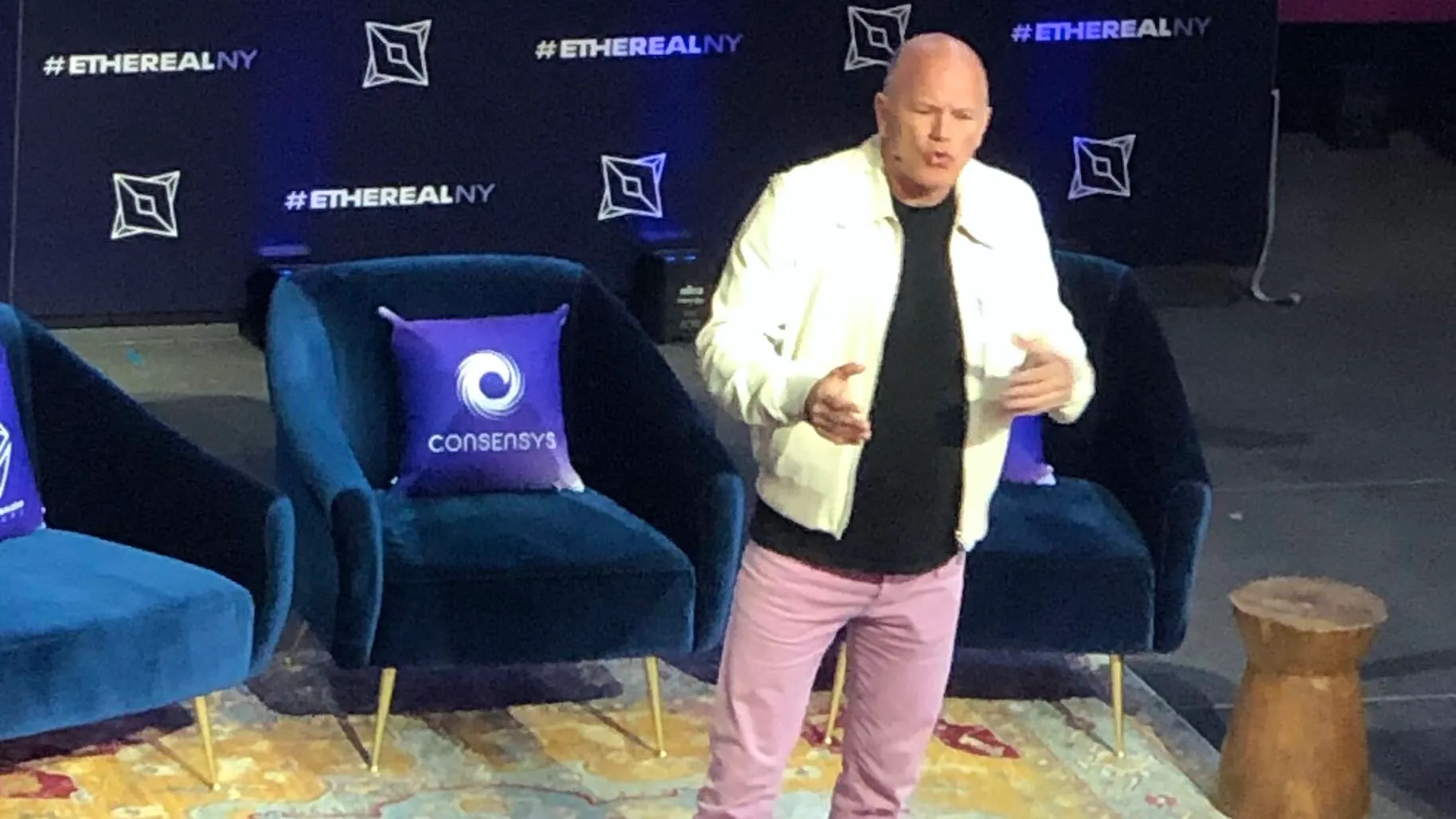This piece has been updated to reflect the fact that Novogratz's jacket was cream, and not taupe. We regret the error.
Galaxy Digital CEO Mike Novogratz took to the main stage at the Ethereal Summit in New York, clad in gaudy pink chinos and a cream Amazonian jacket (“my wife said I looked like a Good ‘n’ Plenty”), to break down the state of the industry into three constituent parts.
The first major use for crypto? Store of value. It’s Bitcoin, and it’s “done,” the legendary ex-hedge fund manager said, adding, “Bitcoin is kind of finished. You don’t need to do a lot more to it to fulfil its use case; it’s not the technology. We could take the bitcoin code and reconstruct it tonight, we call it Novocoin and it’ll be worth bupkis.”
He said that speculators should be wary of altcoins that have no use cases, and likened the crypto ecosystem to the periodic table.“ There are 114 elements on the periodic table,” he said. “Only one, gold, just gets store of value.”
The second major use case for crypto is payments—and the winner is very much TBD. Novo pointed out that in China, something like 95 percent of the population use their phone to pay for stuff. Very few people do in the west. But with the advent of a proper stablecoin—he cited Telegram and Facebook as being the 800-pound gorillas to watch—that’s likely to change, he said.
The third, and final major use case is Web3.0—the interesting, soul-cleansing, “save-the-world” stuff. And while Ethereum is the frontrunner here, the race is on to create the programmable blockchain for everything. Though Novo said he was a fan of Ethereum (he was also the Princeton University roommate of Ethereum co-founder Joseph Lubin), he pointed out that massive competition was coming from the likes of Cosmos, Dfinity and PolkaDot. And that the winner of the Web 3 world might not be known for at least five more years.
Novogratz spoke animatedly in his trademark gravelly baritone about how important the stakes are here in the race to build out the cryptoshpere. The world teeters on the edge of a technical dystopia as competing technologies vie for the future.
He pointed to China, for instance, where five years ago “Everyone loved President Xi. He was supposed to be a great reformer.” But now he “has the tools to be an autocrat. And with a centralized digital currency that’s very scary,” he said.
The vast majority of transactions in China are mobile payments that “all go through a government clearinghouse,” which, he said, “gets plugged into big government, big brother machine learning AI.”
And when a currency digitizes on a centralized database, he said, the autocrats get creative. “Last year,” he said, “13 percent of Chinese [citizens] were forbidden from travelling region to region because of their social credit score.”
”To me, watching this payment gig is really important,” he growled. Making a decentralized money is “the next big move,” toward a “real transformation of the way we function as an economy.”
How win? “Ethereum will have to win and actually get used,” he said.“Then there’s that transformation where it actually becomes money, it becomes payment.”
“The good news for ether, is ether is way ahead,” he said. To win these things, he said, “You have to have community. What is a community? It’s entrepreneurs, developers, coders; in the long run, it’s users. You gotta get them in the room.” Gesturing at the few hundred people swarmed around him, he proclaimed, “Ethereum has the most people in the room.” (Though the influence the industry is having on hedge funds disappoints him. “The hedge fund industry for crypto is going to be based in San Francisco,” he said. “And it pisses me off.”)
Other tokens, like Litecoin, consist of weaker communities, he said. “Litecoin is a community of speculators, of promoters, of pumpers.”
Whatever it is, the battle must be won.
“It’s essential for our life liberty and the pursuit of happiness.”
And with that, Novogratz left the building.

